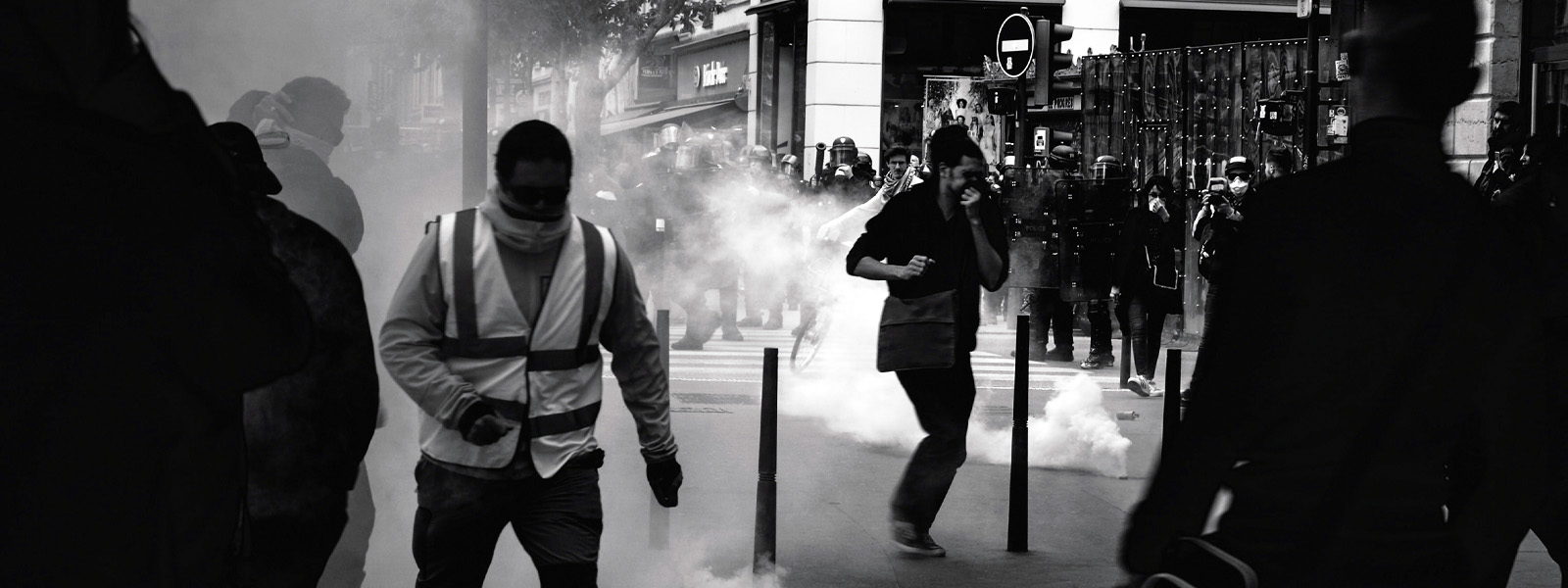Module Overview
This social science module explores the ways in which knowledge is created, communicated, consumed and debated in the social and political sciences. It aims to expose students to key issues of methodological choice, issue framing, research ethics and author subject-position through interrogation of contemporary and classical texts of relevance to the social and political sciences and the disciplinary concerns of the MA programmes on which it appears. The module seeks to develop students’ skills in critical reading and in both oral and written academic debate.
Module Overview
This module explores feminist theories of gender, applying feminist perspectives to contemporary issues. As there is no single ‘feminist’ perspective, the module will introduce students to different strands of feminist thought including liberal, radical, black, postcolonial and postmodern feminisms. Feminist debates around the nature of gender/sex, the causes of gender inequality, the intersection of gender with other important social and political identities (such as race, class and sexuality) and disagreements over strategies for how best to address continuing gender inequalities will all be addressed. In addition, we will examine the extent to which a postfeminist perspective which takes feminism for granted but at the same time dismisses its continuing relevance is currently dominant in society. We will also engage with questions around the relevance of feminism to men and masculinity. Finally, we will consider what light feminist theoretical perspectives can shed on a range of gendered issues. Sample topics might include: the family, pornography, popular culture, the workplace, the family, everyday sexism and objectification. Students will be encouraged to develop their own critical and informed answers to key questions such as how far gender is a performance (as opposed to biologically determined), which feminist perspectives offer the most promising tools for challenging the contemporary gender order and how we can apply feminist thought to re-imagining gender relations. In accordance with a feminist pedagogical ethos, students will also be required to demonstrate a reflexive approach to the theory, analysing the links and disjunctures between their own experiences and feminist theoretical debates. Overall, the module will aim to ‘make the familiar strange’ and enable students to question their own assumptions, as well as popular and common sense notions of gender.
Module Overview
This module aims to provide the opportunity to develop an in-depth understanding of some central concepts and theoretical debates on gender and sexuality including feminist theory and masculinities. These can be examined in greater depth in the context of key issues relating to power and economy in contemporary global politics.
These theories can then be applied to a range of case studies/issues. These case studies may change to reflect contemporary issues and academic developments but sample topics include decision-making processes in national and international political systems, the construction of gender and sexual identities in a globalised world and militarised masculinities.
Module Overview
The independent study module allows students to explore their own interests relevant to gender studies in accordance with the University’s Student as Producer policy. It provides students with an opportunity to undertake and produce an independent piece of in-depth research. Students will develop their research ideas in collaboration with teaching staff and will be supported to design and implement a coherent, robust research project and to write up their findings/analysis in the form of a dissertation. The format of the study will vary from primarily library-based or theoretical research to the production of empirical research through qualitative or quantitative fieldwork. Students will need to: examine an issue related to gender studies; demonstrate the ability to critically review the relevant academic literature; address a clear research question or hypothesis; address ethical issues in conducting social research ; and give a clear explanation and defence of the methods they have chosen as most appropriate to their study.
Module Overview
This module is designed to introduce students to researching in social and political sciences. The aim of the module is to provide a crucial foundation for all students (regardless of disciplinary background) to understand debates around research methods/methodologies in social science; to enable familiarity with a variety of research methods and to equip students to be able to critically evaluate the strengths and weaknesses of applying specific methodologies/methods to different research projects in social and political sciences. Overall, the module will aim to prepare students for independent studies later in their degree and equip them with transferable research skills.
Module Overview
This module aims to introduce students to different paradigms of the 'body' and 'embodiment'. Recent research suggests that our understandings and our relationship with our own and other ‘bodies’ has been and is continuing to undergo radical changes. This module will seek to explore these ongoing developments in Western and non-Western cultures and societies.
Module Overview
This module introduces key issues and concepts in gender history, with particular reference to early modern masculinity. An introduction to key ideas and scholars is provided, focussing particularly on the ways in which scholars of the history of masculinity use a variety of texts – from journals and letters to visual material and published works – in order to elucidate the ideals and experiences of both early modern men and women.
The module offers students the opportunity to engage in sustained analysis of developments in scholarship relating to masculinity in the period c.1500-1750. This is designed to enable them to demonstrate their understanding and ability to structure their own research, utilising primary and secondary sources, including works from cognate disciplines such as gender theory and other theoretically-informed approaches.
Module Overview
This module deconstructs the interrelationships between gender, crime, deviance and society. It will explore gender through a criminological lens and aims to introduce students to ‘gendered’ explanations of crime and deviance. The significance of gender in the various agencies of the criminal justice system will also be explored, as will its presence a range of discourses around victimhood and offending. The ways in which ‘justice’ can be gendered will be identified and critiqued. The module will also aim to critically engage with notions of harm, dangerousness and risk, and unpick the arguments found within feminist criminologies.
Module Overview
This module examines the multi-directional and variable relationship between gender, media and culture. We will interrogate the category of gender as a tool of cultural analysis and its relation to media and popular culture. Gender will be presented as central to media and cultural formations, while media, mediation and culture will be presented as central to gender formations. Key concepts to be examined in relation to gender will include body, class, power, sexual difference, masculinity/femininity race/ethnicity, identity/non-identity and subjectivity. These concepts will be introduced and examined in relation to case studies, media practices and texts from a variety of historical and geo-political contexts.
Module Overview
This module explores masculinities and the operation of power through masculinities in society. It aims to engage with key theoretical perspectives on gender and masculinity, taking an in-depth look at these concepts, along with related ideas such as ‘hegemonic masculinity,’ ‘heteronormativity’ and ‘intersectionality.’ Important contemporary debates in masculinities scholarship will be addressed, such as around hegemonic masculinity, whether this is a useful concept and how far it can explain (global) gendered power relations. Masculinities and masculinity will also be explored in different empirical settings.
Module Overview
This module focuses on the structural parameters and manifestations of political leadership by political ‘chief executives’ (heads of government, party leaders and heads of state). The course is designed to introduce students to some of the many different theoretical and conceptual approaches that have guided empirical investigations into and assessments of political leadership in Britain and beyond.
This module equips students with the necessary tools for studying leaders and leadership in different settings. Students will have the opportunity to apply theories and concepts of political leadership to case studies of presidents, prime ministers and party leaders and apply comparative methods to analyse leaders (such as Blair and Cameron, Hawke and Howard in Australia, Merkel and Macron).
Based on a thematic approach students will consider a range of approaches to political leadership including: personality and charisma, theory from Machiavelli onwards, executive leadership, court leadership, rhetorical, party leadership and ‘bad’/toxic leadership.
Module Overview
This course focuses on the history of gender and sexuality and introduces some of the key concepts and thinkers in the field, from feminists to queer theories. It examines some of the historical debates about notions of gender and sexuality, and the complex structures binding them together.
It looks at the intersections of gender and sexuality with class, race, ethnicity and other modes of social belonging, and covers different geographical areas. It also introduces students to the main methodologies with which to approach the historical documents relevant to the history of gender and sexuality, from the early modern period to the present.
This module also aims to widen students’ understanding of the themes and issues in the history of gender and sexuality, provide students with the conceptual and practical skills of an historian of gender and sexuality, and strengthen students’ critical thinking in the field.





